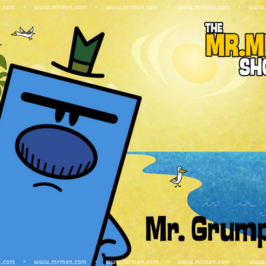[show_wp_shopping_cart]
Sarah y Martin están hablando de un amigo suyo que decidió abandonar Londres para vivir en un pueblo. No pueden ponerse de acuerdo si es una buena idea. La traducción abre en otra ventana, si lo necesitas:
[responsivevoice]Sarah: Have you heard about Daniel?
Martin: No, what’s up?
Sarah: He’s going to move out of London and live in the country- a little village in Kent.
Martin: Oh? That sounds nice. It’ll be a nice change!
Sarah: Do you think so? I don’t see it that way. Think of everything he’ll miss when he’s in the country. I think there’s a pub and a post office and that’s it!
Martin: I don’t go along with you there. Not everybody is suited to life in the city. In fact, I’d say most people aren’t. Getting up early, catching the underground together with tens of thousands of other people, the stress, the rush, the noise- I´m quite jealous actually!
Sarah: I agree with you up to a point, but you have to take into account that it’s not just a two-week holiday- he’s going to live there and he’ll be bored stiff after six months or so. Do you see what I mean?
Martin: I really don’t think so. Life isn’t just about going to shops and nightclubs. Let me explain- If you live in the countryside you can get a dog, go for long walks, do the gardening, sit and read in the garden when it’s nice. What’s more, for the price of a one-bedroom studio flat in Richmond he can get a nice two- or three- bedroom detached house with a garden!
Sarah: I see your point, but I think you’re forgetting something. In London you have everything; the best musicals and theatres, concerts, festivals. Dan’s a football fan- who’s he going to watch in Kent- Faversham Town?
Martin: OK, I see what you mean! You’re right about the football, but when people start talking about all there is to do in the city, they’re missing the point. Of course there’s opera and museums and so on, but that’s not the point- the point is that after an hour standing on the underground, the last thing you want to do is turn around and spend another hour to see an art exhibition of cows cut in half!
Sarah: I have to admit that you’ve got a point. Personally speaking, I´m the first to stay on the sofa when I get home from work, but I still think Daniel’s making a mistake- Take Brian and Sue as an example. They moved to a remote Scottish island two years ago, and I´ve been told they’re fed up and want to come back!
Martin: As I see it, Kent is a nice compromise. Anytime he misses a bit of London he can just get the train in for the day. That’s why I don’t think it’s such a bad idea- on the contrary, I think I might follow his example…..
Sarah: It’s up to you, but I’m not staying here, in case this quiet life syndrome is contagious! What I mean is that I´m perfectly happy being a city girl, even with noise, pollution and everything that comes with it.
Martin: To sum up, we agree to disagree! But maybe we can get Daniel to invite us someday…
[/responsivevoice]Estas son expresiones que pueden ser muy útiles en este tipo de conversación:
De acuerdo (hasta cierto punto):
- I agree with you (up to a point, but..) = Estoy de acuerdo contigo (hasta cierto punto, pero…)
- I see your point, (but you’re forgetting something.) = Veo de donde vienes (pero te has olvidado de algo…)
- I see what you mean, (but don’t you think that….) = Veo lo que quieres decir, (pero no creas que….)
- You’re right! = ¡Tienes razón!
- You’ve got a point, (but you have to take into account that…) = Tienes algo de sentido, (pero tienes que tomar en cuenta que…)
Desacuerdo:
- I don’t see it that way. = Yo no lo veo así
- I don’t go along with you there = No puedo seguirte con ese argumento
- I beg to differ! = ¡Permítame discrepar!
- I don’t think so. = No lo creo
- That’s not the point. The point is that… = Eso no es el tema. El tema es que…
Pedir acuerdo al otro:
- Do you see what I mean? = ¿Ves lo que quiero decir?
- Don’t you think that..? = ¿No crees que….?
- Do you see my point? = ¿Ves lo que digo?
Aclarar ideas:
- Let me explain;* = Déjame explicarme
- What I mean is that….* = Lo que quiero decir es….
- I have to admit that… = Tengo que reconocer que….
- That’s why.. = Por eso
- On one hand…….(on the other hand..) = Por un lado… (por el otro lado…)
- On the contrary,… = Más bien al contrario…
- In that case,…. = En ese caso, ….
*Estas dos expresiones son muy buenas cuando estás atrapado en el medio de una oración y no sabes cómo continuar. Utiliza esta frase y explica lo mismo desde un ángulo diferente..
Dar tu opinión:
- In my opinion, = En mi opinión
- As I see it, = Como lo veo yo
- Personally speaking, I think that… = Hablando por mí, creo que….
- Speaking from experience, I can tell you that… = Hablando desde la experiencia, te puedo decir que….
Dar ejemplos:
- Have you heard about….? = ¿Has oído lo de…?
- Take ………. as an example = Toma como ejemplo …….
- I’ve been told that… = Me han dicho que….
Finishing the conversation:
- To sum up,… = En resumen
- It’s up to you! = Como tu quieras
- That’s settled! = ¡Arreglado! ¡Solucionado!
- We’ll have to agree to disagree! = Tendremos que estar de acuerdo en disentir!
Consejos para Examenes Speaking (Dialogues):
La mejor manera de abordar un diálogo de Speaking es considerarlo como un calentamiento antes de jugar al tenis:
• Debe mantener la pelota rebotando entre usted y su compañero. Asegúrese de que ambos hablen más o menos la misma cantidad de tiempo.
• Al igual que el tenis, la primera persona que hable debe simplemente “servir”: presentar el tema y pasar el balón a la otra persona. ‘Hola Juan! He estado pensando en nuestras vacaciones. ¿Tienes algún plan?” Es cuando estás más nervioso y por lo tanto, si hablas demasiado, cometerás errores.
• No es un partido, porque tu objetivo no es vencer a la otra persona. Por el contrario; tienen que ayudarse mutuamente. Si ve que él o ella tiene problemas, intervenga para ayudarlos: “Can I put a word in?”
• Cada vez que termine de decir algo, intente devolver el balón con una pregunta a la otra persona: “Do you see what I mean?” … , don’t you think? “Do you see my point? What do you make (think) of that idea?
• En un examen de expresión oral, asegúrese de no estar de acuerdo con anticipación, o matará la conversación, pero generalmente tiene que estar de acuerdo al final. Mantenga una opción abierta.
Veamos un ejemplo. Juan y Cristina tienen que desempeñar el papel de hermano y hermana y decidir la forma de celebrar el aniversario de bodas de sus padres. Haz click aquí para la traducción.
Juan: Hello Cristina- it’s about time we thought of something for our parents’ wedding anniversary. Do you have any ideas?
Cristina: Why don’t we book a holiday for them? They would love a trip to London or Paris, don’t you think?
(Tenga en cuenta que cada vez que terminan con una pregunta para su pareja)
Juan: I see what you mean, but you have to take into account that it’s expensive, and I don’t have much money at the moment. How about something a bit cheaper?
(En esta conversación, el acuerdo / desacuerdo se combina con sugerir y hacer planes: haga click aquí para ver el artículo.)
Cristina: In that case, we could pay for a weekend in a country spa….
(En este punto, Juan se da cuenta de que la conversación se está volviendo repetitiva, por lo que cambia de táctica).
[widgets_on_pages id=”Donate”]Juan: I don’t go along with you there. As I see it, it would be better to have a party and invite family and friends. Take last year’s anniversary as an example. We had a big family dinner and they loved it! That’s why I think we should do something similar.
(By giving an invented example, Juan has done two things- include the past tense, and focus the conversation on something different)
Cristina: I see your point, and I have to admit it’s a good idea, but you’re forgetting that Mum doesn’t like a lot of people, even though Dad does.
Juan: But we don’t have to do exactly the same thing. What I mean is that we could take them to a nice restaurant and invite just ……um…Let me explain….we could…
(Aquí Juan parece tener problemas para explicar. Cristina lo ve e interviene).
Cristina: You’re right! I think so too. Why don’t we talk to our uncle and we tell him. What do you make of that idea?
Juan: Perfect! That’s settled!
¡Ya esta! No intentes recordar todas las frases. Elige una o dos de cada tipo, y recuerda que deberías también ver el artículo de Hacer Planes & Sugerencias.
[widgets_on_pages id=”Subscribe”]





